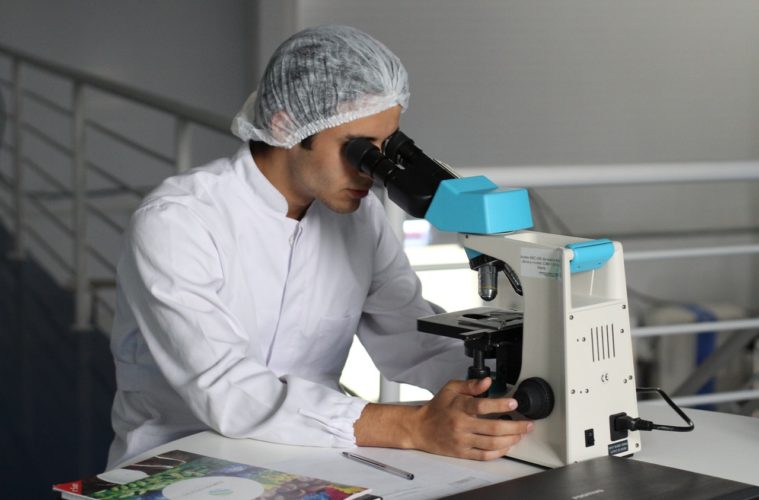Medical Degrees | When the time finally comes for students to choose their majors, they’re often left stranded and confused on what major they should pursue. Those who don’t have a solid mindset of their desired courses are even more puzzled. This is where career counselling bursts through the door and pulls the candidates out of their dilemmas. Career counselling gives the students a clear outlook on what they would like to major in. Students should keep their interests in mind before selecting a major they’ll spend three years studying. Other than that, it is important to discuss with experienced people such as the particular course’s instructors or a counsellor for better guidance. Your university years are critical years of your career life; hence getting all the guidance would be beneficial.
The most important thing is to do your homework on the course. Without preparing, it is impossible to pass the exam. Investigate the course you’re applying for and consider all of the factors that will affect your experience. If you’re interested in medical and wondering which course to choose, here are few ideas:
- Bachelor of Dental Surgery (BDS)
A bachelor’s degree in dentistry (BDS) is required to work as a dental surgeon. In the same areas, the curriculum addresses different types of oral disorders, dentures, and surgery. After MBBS, the most common medical course is BDS or Bachelor of Dental Surgery.
Candidates who pass this 5-year program will be given the designation of “Dr.” and will be able to practice dentistry after they have obtained their license. Obtaining a BDS degree would provide you with various job openings in both the public and private sectors of medicine. It will also tell you what challenges to expect in your career, like dentist burnout, and how to deal with it.
- Bachelor of Pharmacy
The Bachelor of Pharmacy (B.Pharma) is a four-year undergraduate degree that teaches students about prescription processing procedures and methods and how to dispense prescriptions and narcotics. Anyone interested in becoming a pharmacist today should take this course and gain a thorough understanding of the science of medicine.
It is a four-year program with coursework and practical sessions divided into six to eight semesters. B.Pharma also covers the biochemistry and healthcare sector in depth. During this course, students would complete a variety of practical and tests as part of their coursework. For additional help, students can avail of sources like Proprep. After completing the course, students would be able to pursue a career as a pharmacist. Owing to the high demand for healthcare providers that can prepare prescriptions to cure many diseases and deficiencies, the B.Pharma degree will rise in popularity in the coming years.
- Microbiology
Microbiologists analyse microorganisms, the diseases they cause, and the advantages they can have, and then use what they learn to better the environment we live in. Public health problems such as HIV and TB, forensics for police cases, wildlife, and seed genetic modification are only a few covered topics. You’ll invest time in the lab as well as out in the field. Microbiologists operate in various settings, including academic, universities and hospitals, pharmaceutical and biotechnology firms, forensic science laboratories, water and food sectors, and environmental organisations. This is the degree to get if you want to work in microbiology.
- MBBS
The most common undergraduate medical program is the Bachelor of Medicine and Bachelor of Surgery (MBBS). The MBBS program is required of all medical students who choose to become practicing doctors in allopathic medicine. The class encompasses numerous medicine and human anatomy areas to teach students how to diagnose and treat various diseases. The course also covers numerous specialisations in medicine, allowing students to gain in-depth knowledge in their chosen field.
- Physiotherapy Bachelor’s Degree (B.P.Th)
If you want to try a medical career after high school, physiotherapy is a promising field to consider. Candidates will receive training to treat muscle spasms and fractures as part of the initiative. The Bachelor in Physiotherapy program frequently explores all areas of human anatomy to provide students with a thorough knowledge of the species. Patients’ cardiovascular and muscular fitness will be your responsibility as a physiotherapist. Individuals may use the course to treat locomotion difficulties and muscle issues induced by ageing, illnesses, accidents, and illnesses, among other things.
Conclusion
Since medicine is one of the most important disciplines in modern society, medical degrees are extensive, demanding, and among the most difficult and lucrative paths to pursue. Many people who pursue medical degrees must have a keen interest in science and a desire to serve others. It is the mixture of these two reasons that drive them to complete the years of preparation needed to become licensed doctors. Finally, keep in mind that medical education is arranged differently in different countries, and medical degrees earned in one country cannot be accepted in another. So, before settling on a place for your medical education, consider where you’d like to work after graduation and the steps taken to complete your certification.





